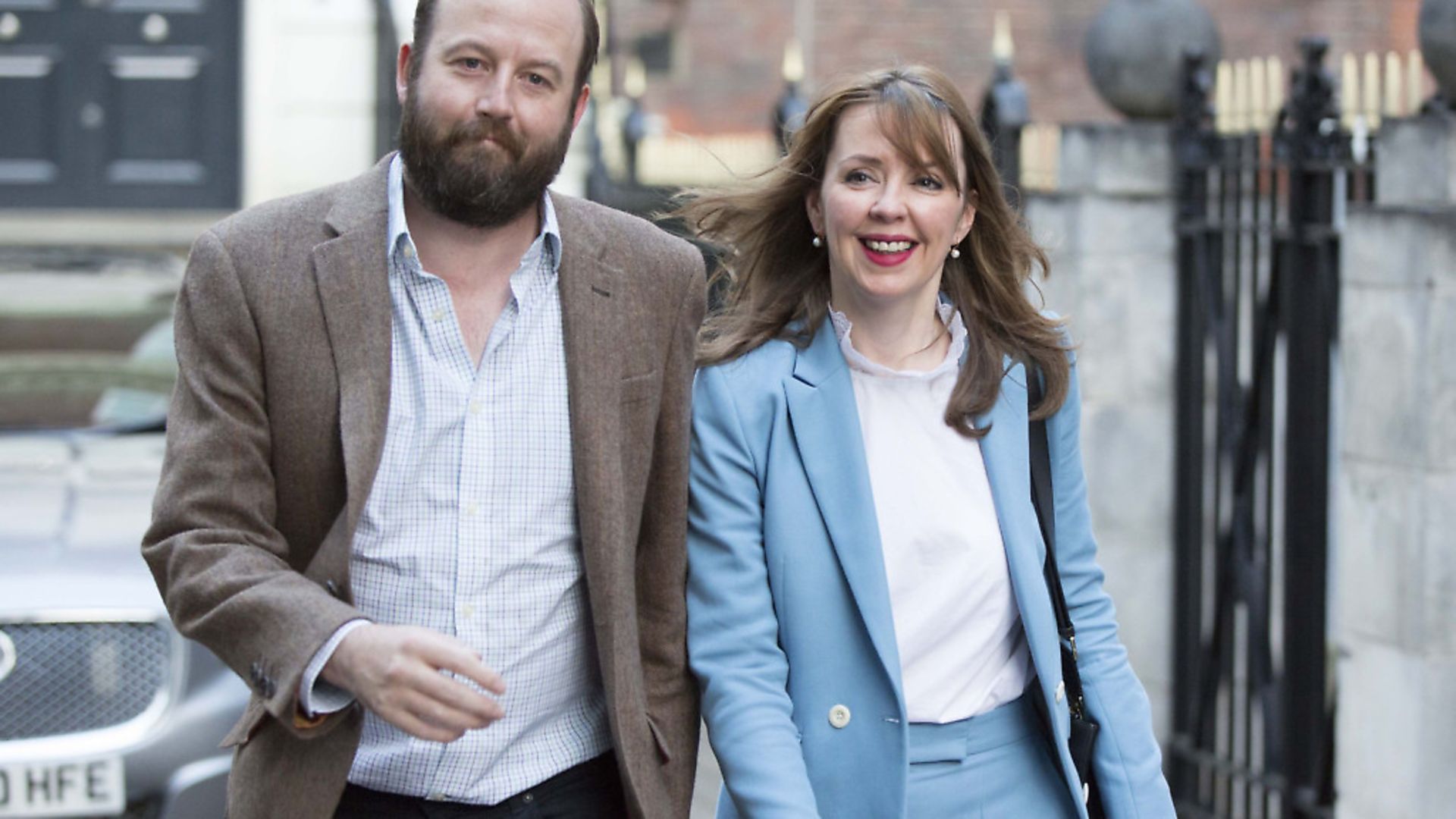
Fiona Hill withdraws from ITV’s election night coverage, Guardian staff dread Seumas Milne’s return… and why can’t journalists be banned from going into politics?
Shunning the limelight since she quit as Theresa May’s joint chief of staff following the 2017 election, Fiona Hill was due to make a high profile comeback as a pundit on ITV’s election night coverage. “We’d been thrilled to get her, but, at the last minute, she pulled out,” whispers my man at the news organisation. “No explanation was given.”
There was speculation that the exit poll showing a clear majority for Boris Johnson spooked Hill. Although now no longer May’s number one fan – she recently admitted that she could be “surly and not particularly pleasant” – she understandably still harbours resentment against Johnson for endlessly plotting against her old boss and making her role all the more taxing.
“They are hardly best mates and I would imagine Fiona had agreed to appear on the basis she could have buried Johnson, not praised him,” one of her friends tells me. “Sadly, that turned out not to be possible.”
Oddly enough, Johnson had phoned Hill after the disastrous 2017 election campaign and urged her not to resign for her part in it, but, then again, he may well have done that because he knew her continued presence beside May would have been embarrassing for her.
Bad odour
Although Brextremists aren’t known for their concern for the environment – climate change necessarily has to be tackled across borders – Stanley Johnson is attempting to make out that his son Boris will be the greenest prime minister ever.
“Johnson senior is a strange old buffer, yearning all the time for approval, but not entirely trusted by anyone after he changed sides in the Brexit debate when it suited him,” one environmental campaigner tells me. “He doesn’t get that keeping in with Donald Trump is all that matters to his son and that doesn’t bode well for anyone with any concern at all for the environment.”
Meanwhile, Tom Burke, co-founder of the climate change think tank E3G, says that the prime minister has made “an awful lot of promises,” but whether he keeps them remains to be seen. The excellent DeSmogUK website points out that he’s actually “rejected climate science a number of times over the years.”
Trading places
In a speech at the Press Gazette British Journalism Awards last week, I ruefully called for a law to be enforced – retrospectively, where necessary – that would prohibit journalists from becoming politicians.
George Osborne makes me think there should also be a law banning politicians from becoming journalists. Last year, the Evening Standard, which he edits, had to deny allegations it was blurring the line between journalism and advertising after offering ‘money can’t buy’ news coverage to brands such as Google and Uber.
Ahead of the election, Osborne ran an editorial telling a city that has always been resolutely pro-Remain to vote for Boris Johnson’s Conservatives and extolled his virtues on television during election night. Mandrake wouldn’t bet against Johnson giving Osborne a sinecure before too long or even helping to facilitate his return to frontline politics.
Homecoming
When Seumas Milne finally quit the Guardian almost three years ago after a long period on unpaid leave working as Jeremy Corbyn’s communications chief, Katharine Viner, the newspaper’s editor wished him well and expressed the hope that he would one day return.
Now I hear there’s a sense of dread among staff on the paper that Viner’s hope may yet be realised after Milne helped to engineer Labour’s annihilation at the polls. “Clearly Milne’s current position is untenable, but Kath has to ask herself if giving him a job here now will be a good look for the Guardian,” says my mole on the paper. “The staff emphatically don’t want him back.”
Milne was known for his posh, booming voice in the newsroom and was once heard to say, at the top of his voice: “I mean to say he didn’t even know that someone who was educated at Winchester is called a Wykehamist.” Milne is himself, of course, a Wykehamist.










